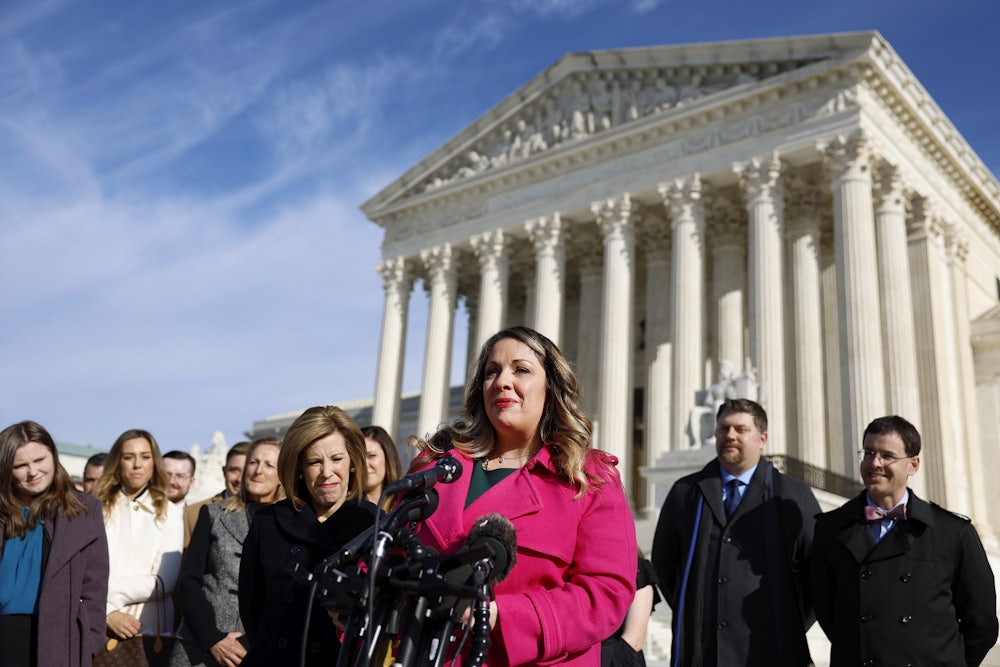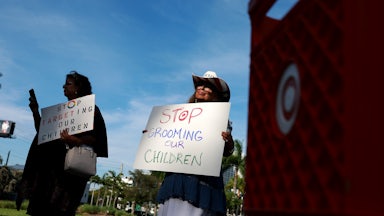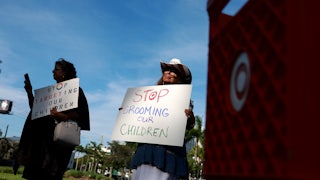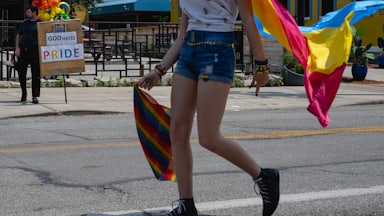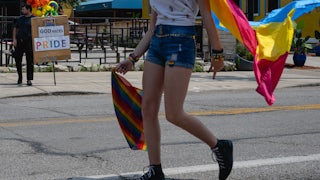If the Supreme Court persists in making rulings based on fiction, how can we take any ruling seriously?
Certainly, this is not a sentiment uniquely inspired by or limited to the opinions the court has issued in its latest term, which ended today with rulings on anti-discrimination law and student debt relief. One of the cases handed down today was brought by a Christian website designer who wants to reject the business of same-sex couples who have in fact never sought her services and may have been invented, while the other involved a student loan debt servicer as an unwilling plaintiff in an effort to end President Biden’s student debt forgiveness program. Just these two cases alone should be enough to throw the court’s legitimacy into question—but they join a long line of recent rulings based on shaky (at best) claims and pure wish fulfillment of the militant Christian right.
Still, it feels unnerving to some, even those caught in the crossfire, to see injuries invented wholesale and lies accepted by the highest court in the land; to see rights so openly trampled on the flimsiest of pretense.
This week, I found myself in the position of breaking this news to one unwilling actor in a case this term, a case that proved to be just one more chapter in the court’s grim unraveling. In 303 Creative LLC v. Elenis, a web designer in Colorado claimed that a state anti-discrimination law prevented her from entering the wedding website business. The law, designer and plaintiff Lorie Smith said, would forbid her from publishing a statement on her website that included the lines, “I will not be able to create websites for same-sex marriages or any other marriage that is not between one man and one woman. Doing that would compromise my Christian witness and tell a story about marriage that contradicts God’s true story of marriage—the very story He is calling me to promote.”
Smith further claimed, in past sworn statements and in filings submitted to the Supreme Court, that she received an inquiry from a same-sex couple named Stewart and Mike to build them a wedding website. Contact information for Stewart, who made the request, was included in a copy of the inquiry in the lawsuit. On Tuesday, I called Stewart. Not only did he have no idea that he was named in a filing in this legal challenge to upend an anti-LGBTQ discrimination law—a challenge he would never support—he told me that he never made this inquiry.
If it feels disorienting to wake up one morning and realize, say, affirmative action or abortion rights have been abolished seemingly overnight, imagine what it feels like to learn for the first time that your identity is wrapped up in one of these cases, just days before it is to be decided, and that you are being falsely used to argue against everything you believe in.
Stewart texted me this morning to ask about the decision. Neither of us thought Smith was going to lose due to this discovery, if she was ever going to lose, based simply on the fact that the court was willing to hear a case built on nothing much more than imaginary Christian grievance. Still, the news of the decision itself was heavy and not what he was hoping to hear.
“5–4?” he asked.
“6–3,” I said.
“JFC,” he replied.
After the story of Stewart’s fake inquiry broke, the most common response I saw was outrage: a demand that the court, presented with what is demonstrably false information in a case it’s about to decide, needs to go back and somehow correct itself. Unfortunately, that’s not how the Supreme Court—and this court in particular—works. The discovery of the very likely faked inquiry that Smith says came from a same-sex couple—that her attorneys, Alliance Defending Freedom, claimed came from a same-sex couple, in their own brief to the Supreme Court in December 2021—was not decisive, at least as far as the result itself was concerned: that, as Justice Sonia Sotomayor put it succinctly in her dissent, “the Court, for the first time in its history, grants a business open to the public a constitutional right to refuse to serve members of a protected class.”
But as evidence of the shabbiness of this session—of the absolute invention that Christian right groups are willing and perhaps even must resort to in order to prevail—this inquiry is pivotal. The group that brought Smith’s case, Alliance Defending Freedom, or ADF, maintains even now that the Stewart and Mike wedding website request was “genuine,” as ADF attorney Kristen Waggoner told The New York Times today (“and called the suggestion,” the Times story went on, “that her organization might have fabricated it ‘reprehensible and disgusting’”). Shortly after we published this article, in response to re-sending questions I’d sent them on Wednesday, ADF sent me an email with a link to a Twitter thread calling my reporting a “last-minute attempt to malign Lorie.”
I asked Stewart if he had any response to ADF’s claims that the website inquiry was “genuine.” Stewart reaffirmed to me that the information in the inquiry is his personal information—and that he’s straight and has been married to a woman since the late 2000s. “The ADF should show proof that the Stewart and Mike in the submission are who they claim to be,” he said.
And has he heard from ADF? They would perhaps be in less peril now to substantiate the inquiry. But no—while ADF has responded to other journalists, they have yet to reach out to Stewart.
We shouldn’t be surprised. The inquiry, unfortunately, is just one of many questionable facts alleged before the court that were never checked out, or were too good to check out, or unnecessary to check out for the court to serve its purpose: to give discrimination and exclusion, and the court itself the veneer of legitimacy.
This article has been updated.
